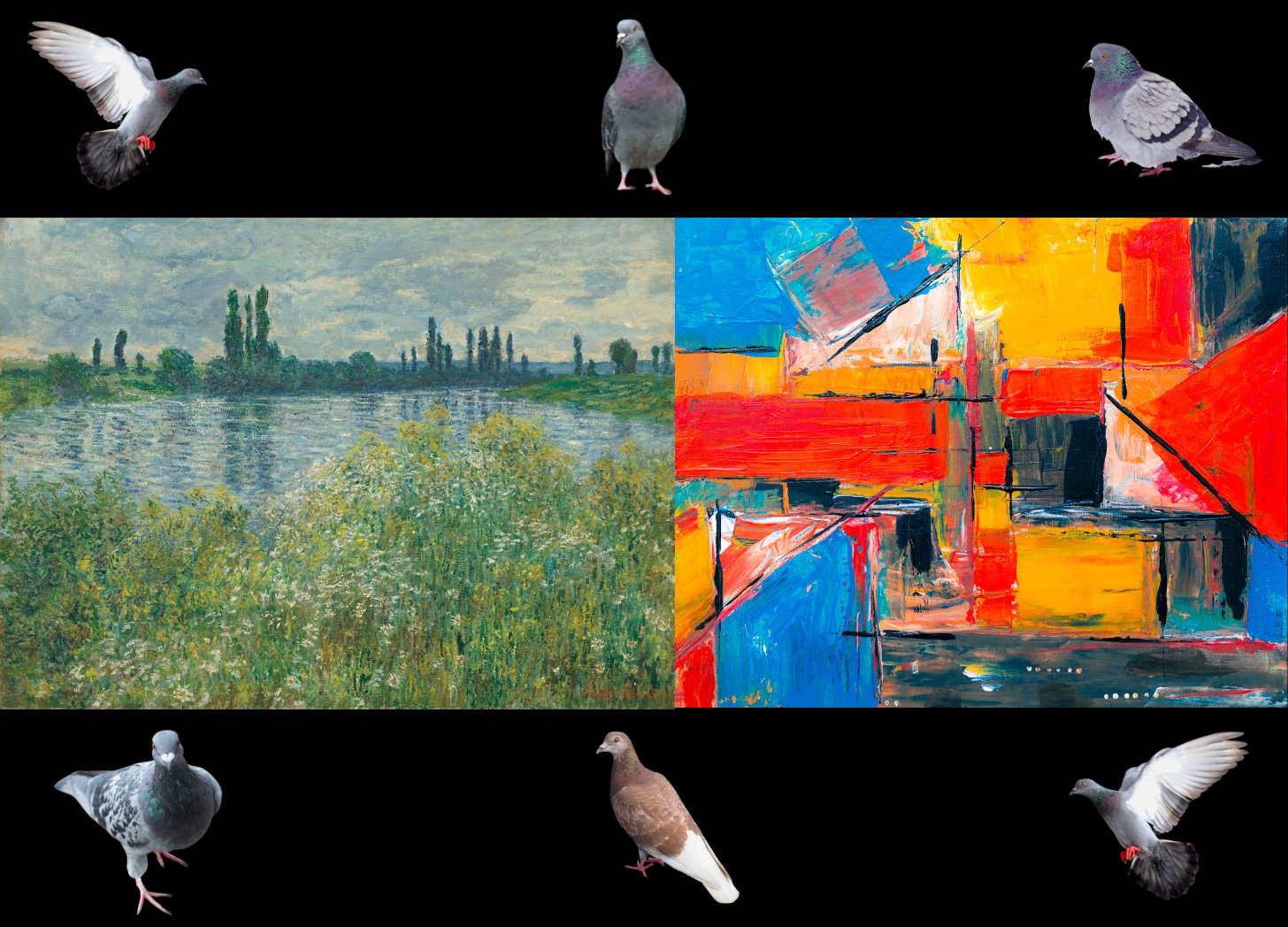The Ig Nobel Prizes are not your typical academic accolades. Celebrating research that "first makes you laugh, then makes you think," these annual awards highlight unusual, quirky, and often hilarious studies across various disciplines. First presented in 1991, the awards are organized by the scientific humor magazine Annals of Improbable Research, which aim to honor achievements that push the boundaries of curiosity, creativity, and exploration. While lighthearted and playful, the Ig Nobels also spotlight genuine scientific endeavors, showcasing how research can be both fun and thought-provoking.
Psychological research has featured prominently in these awards, with the field often taking center stage. In fact, in many years, the Ig Nobels have had a dedicated psychology category, awarding studies that offer unique insights into human behavior, cognition, and social interaction—often in ways that are as unexpected as they are amusing.
In this article, I will be listing the winners of the psychology category through the years, along with a citation and link to the published research, so that you can learn more about these captivating and seemingly absurd studies. While undeniably irreverent, the Ig Nobel Awards provide a wonderfully engaging way to introduce students and the general public to the research process, reminding us that science doesn’t always have to be serious to be meaningful.
The entire purpose of the awards is to spur public interest in science and to particularly show students and the next generation that science does not have to be a dry, dull, boring endeavor...You can laugh about your work while doing very credible science. (Dr. Peter Snyder)
And the Winner Is…
Stanley Milgram, Leonard Bickman, and Lawrence Berkowitz for experiments on a city street to see how many passersby stop to look upward when they see strangers looking upward.
Milgram, S., Bickman, L., & Berkowitz, L. (1969). Note on the drawing power of crowds of different size. Journal of Personality and Social Psychology, 13(2), 79–82. https://doi.org/10.1037/h0028070
Fritz Strack, for discovering that holding a pen in one’s mouth makes one smile, which makes one happier — and for then discovering that it does not.
Strack, F., Martin, L. L., & Stepper, S. (1988). Inhibiting and facilitating conditions of the human smile: A nonobtrusive test of the facial feedback hypothesis. Journal of Personality and Social Psychology, 54(5), 768–777. https://doi.org/10.1037/0022-3514.54.5.768
Evelyne Debey, Maarten De Schryver, Gordon Logan, Kristina Suchotzki, and Bruno Verschuere, for asking a thousand liars how often they lie, and for deciding whether to believe those answers.
Debey, E., De Schryver, M., Logan, G. D., Suchotzki, K., & Verschuere, B. (2015). From junior to senior pinocchio: A cross-sectional lifespan investigation of deception. Acta Psychologica, 160, 58–68. https://doi.org/10.1016/j.actpsy.2015.06.007
Brad Bushman, Oulmann Zerhouni, Baptiste Subra, and Medhi Ourabah, for confirming, by experiment, that people who think they are drunk also think they are attractive.
Laurent Bègue, Brad J. Bushman, Oulmann Zerhouni, Baptiste Subra, and Medhi Ourabah (2012). 'Beauty is in the eye of the beer holder': People who think they are drunk also think they are attractive. British Journal of Psychology DOI: 10.1111/j.2044-8295.2012.02114.x
This one definitely gets my vote for best title!
Anita Eerland and Rolf Zwaan and Tulio Guadalupe for their study “Leaning to the Left Makes the Eiffel Tower Seem Smaller”
Eerland, A., Guadalupe, T. M., & Zwaan, R. A. (2011). Leaning to the left makes the Eiffel Tower seem smaller: Posture-modulated estimation. Psychological Science, 22(12), 1511–1514. https://doi.org/10.1177/0956797611420731
Karl Halvor Teigen of the University of Oslo, for trying to understand why, in everyday life, people sigh.
Teigen, K. H. (2008). Is a sigh "just a sigh?" Sighs as emotional signals and responses to a difficult task. Scandinavian Journal of Psychology, 49(1), 49–57. https://doi.org/10.1111/j.1467-9450.2007.00599.x
Watch the video before reading on.
Daniel Simons of the University of Illinois at Urbana-Champaign and Christopher Chabris of Harvard University, for demonstrating that when people pay close attention to something, it’s all too easy to overlook anything else — even a woman in a gorilla suit.
Simons, D. J., & Chabris, C. F. (1999). Gorillas in our midst: Sustained inattentional blindness for dynamic events. Perception, 28(9), 1059–1074. https://journals.sagepub.com/doi/10.1068/p281059
This one definitely gets my vote for the cleverest title.
Gian Vittorio Caprara and Claudio Barbaranelli of the University of Rome, and Philip Zimbardo of Stanford University, for their discerning report “Politicians’ Uniquely Simple Personalities.”
Caprara, G., Barbaranelli, C. & Zimbardo, P. Politicians' uniquely simple personalities. Nature 385, 493 (1997). https://doi.org/10.1038/385493a0
Lawrence W. Sherman of Miami University, Ohio, for his influential research report “An Ecological Study of Glee in Small Groups of Preschool Children.”
Sherman, L. W. (1975). An ecological study of glee in small groups of preschool children. Child Development, 46(1), 53–61. https://doi.org/10.2307/1128833
Shigeru Watanabe, Junko Sakamoto, and Masumi Wakita, of Keio University, for their success in training pigeons to discriminate between the paintings of Picasso and those of Monet.
Watanabe, S., Sakamoto, J., & Wakita, M. (1995). Pigeons' discrimination of painting by Monet and Picasso. Journal of the Experimental Analysis of Behavior, 63(2), 165–174. https://doi.org/10.1901/jeab.1995.63-165
David Dunning of Cornell University and Justin Kruger of the University of Illinois, for their modest report, “Unskilled and Unaware of It: How Difficulties in Recognizing One’s Own Incompetence Lead to Inflated Self-Assessments.”
Kruger, J., & Dunning, D. (1999). Unskilled and unaware of it: How difficulties in recognizing one's own incompetence lead to inflated self-assessments. Journal of Personality and Social Psychology, 77(6), 1121–1134. https://doi.org/10.1037/0022-3514.77.6.1121
Lee Kuan Yew, former Prime Minister of Singapore, practitioner of the psychology of negative reinforcement, for his thirty-year study of the effects of punishing three million citizens of Singapore whenever they spat, chewed gum, or fed pigeons.
What is it about psychology and pigeons? 😂
Visit Why Singapore banned chewing gum to learn more about Lee Kuan Yew.
John Mack of Harvard Medical School and David Jacobs of Temple University, mental visionaries, for their leaping conclusion that people who believe they were kidnapped by aliens from outer space, probably were.
Mack and Jacobs were the first winners of the Ig Nobel prize for psychology in 1993. The reference given for their work was Jacobs’s book Secret Life: Firsthand, Documented Accounts of UFO Abductions (An Oral History of Alien Abductions).
Wrapping Up: Fun, Quirky, and Meaningful Research
As we’ve seen from the many winners of the Ig Nobel Prize for psychology, there’s nothing wrong with conducting research that is both fun and quirky. In fact, these studies often capture the public’s imagination and serve as a delightful entry point into the world of psychological science. While these projects may appear lighthearted at first glance, they still contribute to our understanding of human behavior in unexpected and meaningful ways.
The beauty of the Ig Nobel Prizes is that they remind us that curiosity and creativity are at the heart of scientific discovery—and sometimes, the strangest questions lead to the most profound insights. So, what about you? If you could carry out a research project with a chance of winning an Ig Nobel Prize for psychology, what would it be? Whether it’s about our quirky habits, odd social behaviors, or unexpected cognitive processes, I’d love to hear your ideas! Who knows, your idea might just be the next big (and hilarious) contribution to psychological science!
As for me, I’ve always wondered whether people who talk to plants make better public speakers. There’s a research idea in there somewhere. I could study whether individuals who regularly converse with their plants perform better in public speaking scenarios compared to those who don’t. Does practicing with non-judgmental greenery boost confidence or improve speaking style?
Anyway, that will have to wait for now as I need to have a word with Alan the Aspidistra.
Stay in the know! The All About Psychology newsletter is your go-to source for all things psychology. Subscribe today and instantly receive my bestselling Psychology Student Guide right in your inbox.
Upgrade to a paid subscription and also get the eBook version of my latest book Psychology Q & A: Great Answers to Fascinating Psychology Questions, as well as regular psychology book giveaways and other exclusive benefits.











Lovely column that had me laughing. Surprising to see so many of the big names here too.